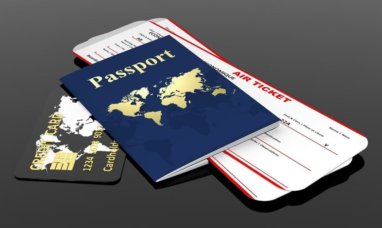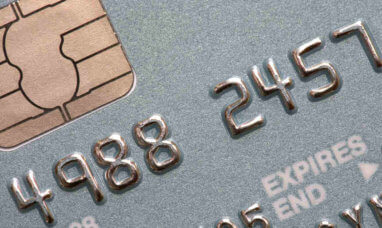Follow WealthyMillionaire’s guide to your first credit card to make the right decisions for your needs.
A credit card can be a double-edged sword. On one hand, having a strong credit score will help you a lot in life, providing you with opportunities for loans and reduced rates. Your credit rate can be viewed as a measure of how trustworthy you are as far as consistently paying your bills goes. Having a great credit rate will help you when it comes time to get a house, a car, or any other large purchase that involves monthly payments.
On the other hand, mismanagement of credit cards can be disastrous. If you are not careful, you can find yourself under a mountain of debt which can be nearly impossible to escape. When you fall behind payments, that cherished credit score becomes damaged and becomes an anchor pulling you down and preventing you from acquiring the help that you need. It’s a snowball that becomes an avalanche.
However, if you are careful and do a little research, a credit card can be a wonderful tool to help prepare for your future and give you extra assistance when you can use it. Plus, it can even help you to save money!
What You Should Know Before Taking Out Your First Credit Card
How Does a Credit Card Work?
A credit card gives you the ability to purchase items without paying for them in advance. While that sounds great, it does come with a caveat: the credit card company wants to make money, and to do so, they will charge you interest on the money they provide you upfront.
This is not really that big a deal if you pay your credit card bills immediately or shortly thereafter; there is typically a grace period in which you can pay the bill with no interest whatsoever. It’s when you can’t pay them off quickly that these claws can gouge you.
Credit cards charge an interest rate from month to month, based on an APR (annual percentage rate). That means that whatever percentage your credit card uses, that amount extra is what you will pay each year. In other words, if your card has an APR of 25% and you bought something that cost $100, at the end of a year you would be paying one-fourth of that amount extra, or $25. Now, imagine that number was exponentially higher; it becomes easy to see how paying that money back could become troublesome and lead to trouble.
Know Yourself and Your Habits
Just because you can get a card doesn’t mean you are ready. Once you have a card, you must face the temptation of being able to spend beyond your means, so to stay out of debt, a certain level of maturity and control is required. Here are some tips to help you decide if you should get your first card.
-
-
- Are you good at saving money and/or keep a fund for emergencies?
- Are you organized in life and demonstrate responsibility for other things?
- Are you able to avoid impulsive buys and think through purchases?
-
If so, you just may be ready.
Best Credit Cards of December 2025
How Do I Get My First Card?
Here are some tips on what is required to qualify for a credit card.
-
-
- You will probably need to be 21 in order to get a card. Other options include being added to a parent’s card to build credit at a young age or having a co-signor for a card, which is becoming a rare option.
- Your income is a factor: you need to be able to pay your monthly minimums, and a debt ratio of 20% or less is considered ideal.
- Better reward cards require you to have a high credit score, which you are unlikely to have without having previous credit card experience. There are some options to get you started which include secured cards, student cards, or credit builder cards.
-
Which Card Is Best for Me?
Below are some good options for just getting started.
Discover It Secured Credit Card
A secured credit card is one where you will put down a deposit. That helps offset the lack of credit history by providing a net for the company if you begin to struggle. Here is how to get approved for a discover student credit card:
-
-
-
-
- Apply for the card
- Pay at least a $200 deposit, which will form the basis of your credit limit
-
-
-
Note: You only have to be 18 to apply, and since it’s meant for new card users, as long as you have the means to make payments, it shouldn’t be difficult to get approved.
Schools First Activate Credit Card
This card is another that is meant for those who are just starting out or have bad credit. The process is exactly the same as above, except that this one requires a $500 security deposit.
One advantage to this card is that the Federal Union offers higher-level rewards cards, so once you build up excellent credit, you can trade your beginner card in for a more advanced card.
Best Credit Cards For Students Traveling Abroad
If you are going to school out of the country, here are some cards that have no foreign transaction fee.
-
-
- Capital One Quicksilver Cash Rewards Card
- Discover It Cash Back Card
- Bank of America Travel Rewards Card
- Citi Premier Card
-
Tips for Wise Credit Card Management
-
-
- Keep track of your purchases and statements so you can control your spending
- Schedule automatic payments so you do not forget to pay on your card
- Keep credit limit usage to a minimum instead of maxing out
- Pay your bill in full each month to avoid credit card interest
- Know fees associated with the card so you can avoid extra charges
-
Advanced Cards for Higher Credit Scores
Once you have established a credit score, you’re ready for rewards cards. These can save you a lot of money by providing cashback percentages, points, or miles that can be redeemed for rewards for using the cards while traveling.
Cashback Rewards Cards
These are the simplest to deal with, as you typically get a percentage of your money on cards back as a statement of credit. There aren’t a lot of hoops or hurdles needed to take advantage of these deals, but they can save you a lot of money over time!
Hotel vs. Airline Credit Cards
If you travel often, you may find yourself wondering which of these types of rewards cards are better.
The simple answer is this: It depends on what you use and how you travel.
An airline card’s points are more valuable, so if you spend most of your time traveling by plane — that’s probably better for you.
If, however, you travel more by car or plane, a hotel card will probably prove more beneficial to you.
Feature Image: Megapixl








